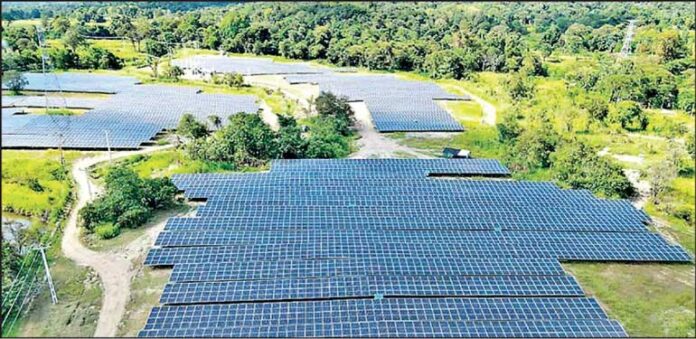By: Staff Writer
May 11, Colombo (LNW): Sri Lanka’s solar power industry is raising alarm over a potential collapse in the renewable energy sector unless urgent policy reforms are introduced.
In a comprehensive submission to the Public Utilities Commission of Sri Lanka (PUCSL), the Solar Industries Association (SIA) has warned that flawed regulations, poor policy decisions, and misinformation are undermining investor confidence and threatening the future of solar energy in the country.
With over 1.5 GWp of solar PV capacity already installed, the sector has contributed significantly to national energy savings. However, the SIA claims the current regulatory environment is creating instability, jeopardising further development, and endangering tens of thousands of jobs.
Central to the Association’s concerns are what it describes as “unprofessional” and inaccurate recommendations influencing policymaking.
The SIA accuses recent Cabinet proposals of relying on faulty data, particularly exaggerated plant load factor (PLF) assumptions. While actual solar performance averages between 13–14%, official models use a 16% benchmark, skewing tariff calculations and deterring investment.
The disparity in tariffs between rooftop and ground-mounted systems is another sticking point. Rooftop solar accounts for 88% of the country’s solar output, yet it is being financially penalised. The SIA argues that these policies are not only arbitrary but detrimental to the most cost-effective segment of solar generation.
The 2024 Electricity Act, initially passed to accelerate renewable energy deployment, is also under threat, according to the submission. The SIA claims there has been a deliberate slowdown in renewables, highlighted by the approval of a second LNG plant, allegedly based on misleading data that contradicts least-cost energy principles.
Solar developers are also grappling with operational setbacks, including uncontracted energy curtailments—where their power output is restricted without compensation. The Association proposes tariff-based incentives for such curtailments and calls for an audit of curtailment data to ensure transparency.
The lack of battery storage tariffs, outdated grid infrastructure, and delays in implementing smart meters and power wheeling further complicate the industry’s challenges. The SIA emphasises that energy storage should be considered essential infrastructure, and urges the immediate rollout of smart meters for improved grid management.
Investor uncertainty has been heightened by frequent, unexplained tariff changes and ambiguity around the Net Plus scheme. The SIA warns that a proposed cut to feed-in tariffs could decimate the SME-led solar sector and result in the loss of around 40,000 jobs. Over 100,000 rooftop systems, mainly owned by middle-income families, risk becoming economically unviable.
Compounding the crisis, the solar industry has been unfairly blamed for the nationwide blackout on 9 February 2025, despite no supporting evidence.
The SIA concludes with urgent calls for rational tariff reforms, compensation for curtailment, transparent policymaking, and the restoration of supportive programs like the Net Plus Plus scheme. “Swift action is critical,” the SIA said, “Solar energy is central to Sri Lanka’s sustainable development and energy future.

